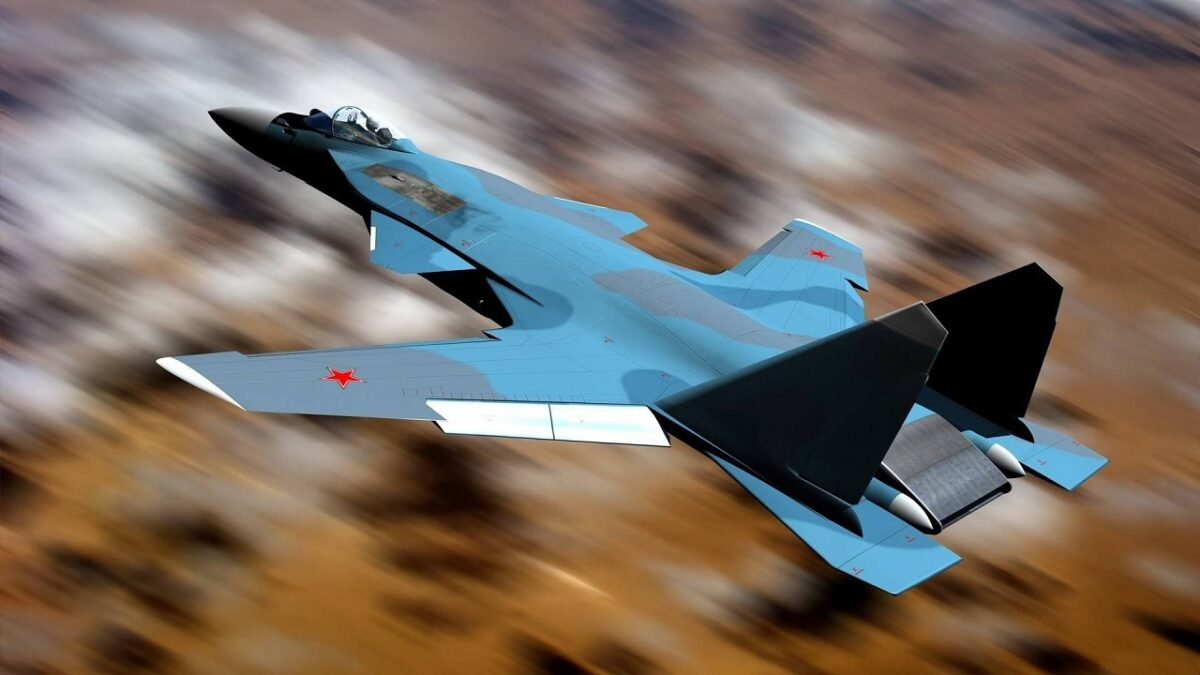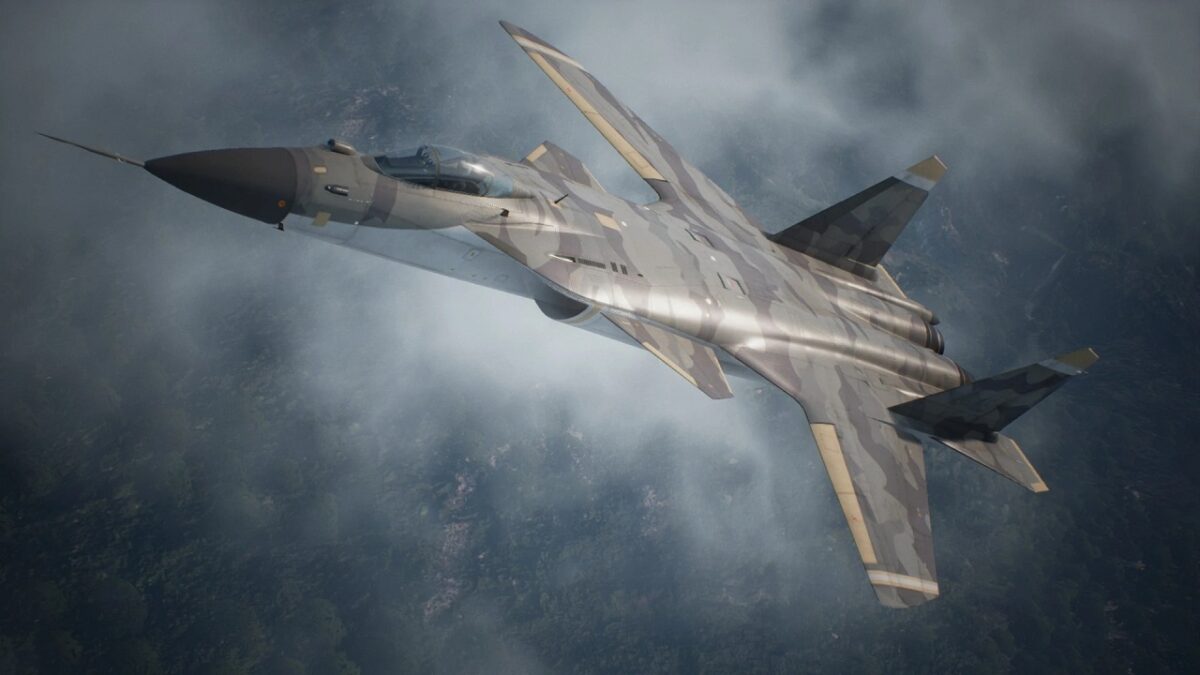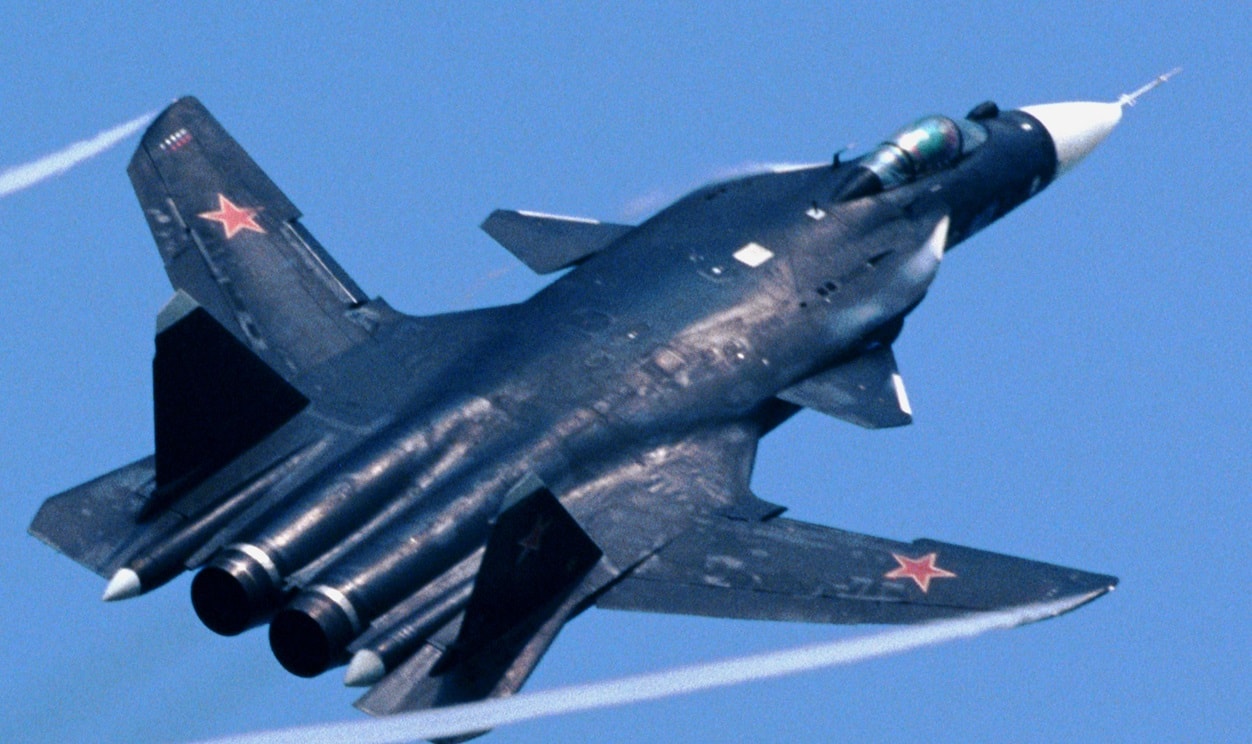Meet the Su-47: The Su-47, previously designated the S-32 and S-37, was an experimental aircraft designed for the Soviet Union in the 1990s. Called the Berkut, or Golden Eagle, it is highly recognizable due to its wings, which are swept forward instead of aft and give the Berkut a very unique look.
In fact, experience from the Su-47 informed manufacturer Sukhoi’s development of the forward-swept-wing KB SAT SR-10 trainer.
Although the Su-47 does not fly the skies anymore, a number of its advanced technologies remain integral for Russia’s more modern fighters, including the Su-35 and Su-57 fighter.
Su-47: Forward Sweep
As early as the 1920s and 1930s, aircraft designers became interested in forward swept wings.
Changing the geometry of wings can do many useful things aerodynamically and in the case of forward sweep, they allow for exceptional maneuverability and excellent control at slow speeds.
These advantages are not with counters, however.
Forward swept wings induce a great deal of aerodynamic instability in an aircraft.
Instead of wanting to return to straight and level flight, the Berkut and indeed any forward swept wing aircraft has a strong tendency to want to roll off one way or another requiring constant vigilance from the pilot.
In addition, sweeping the wings in this direction produces a great deal of stress on the wing, requiring very strong materials to prevent the wings from snapping.
These difficulties proved impossible to overcome early on. In the 1940s, Nazi scientists attempted to construct a bomber with forward swept wings; however, the materials of the time meant that the wings would be excessively heavy to make them strong enough not to fall off.
In the 1960s, a German manufacturer was able to develop a small forward-swept bizjet, the HFB-320, but it wasn’t until the ‘80s that a forward sweep was given to a military aircraft in the Grumman X-29.
The Su-47 first flew in the late ‘90s and immediately demonstrated the maneuverability of a forward-swept wing. Advances in computing technology allowed Sukhoi designers to include a sophisticated fly-by-wire system which helped eliminate the difficulties of an unstable aerodynamic design.
Two D-30F-11 turbojet engines powered the Su-47, but was ultimately replaced by more sophisticated Al-41F thrust-vectoring turbofans.
As explained in an earlier 19FortyFive piece, “similarly to the F-16, the S-57 was so responsive it relied on a fly-by-wire system to automatically correct its aerodynamically unstable characteristics.”
What happened to the Su-47?
Ultimately, the breakup and fall of the Soviet Union doomed the Berkut. With a lack of financial support from the Russian Air Force, Sukhoi invested most of the design funds themselves.

Su-47. Image Credit: Computer Generated Image/Creative Commons.

Computer generated image of the Su-47 fighter. Image Credit: Creative Commons.
While some of the technology from the Su-47 was incorporated in the 4.5 gen Su-35 and fifth gen Su-57 it was ultimately deemed unfit to be a standalone fighter and only one was ever built. While it was displayed at the MAKS airshow in 2019, it is now relegated to static roles as a demonstration of technical advancements.
Maya Carlin is a Senior Editor with 19FortyFive. She is also an analyst with the Center for Security Policy and a former Anna Sobol Levy Fellow at IDC Herzliya in Israel. She has by-lines in many publications, including The National Interest, Jerusalem Post, and Times of Israel.
From 19FortyFive
Footage Shows World War I Guns Being Used in Ukraine
‘Vacuum Bombs Destroyed’: Ukraine Footage Shows Putin’s Thermobaric Rockets Destroyed
BOOM! Ukraine Video Shows Precision Strike on Russian Air-Defense System

